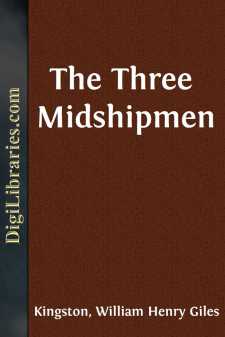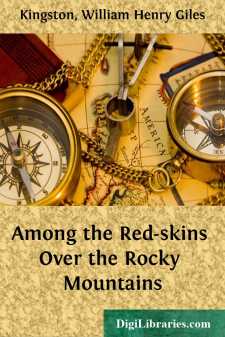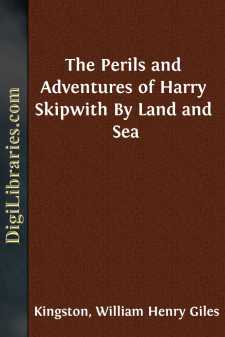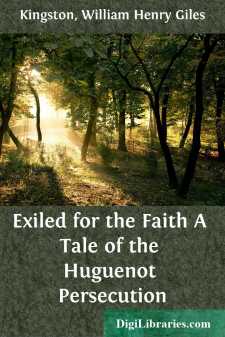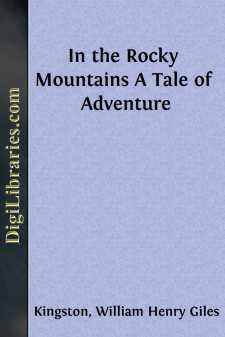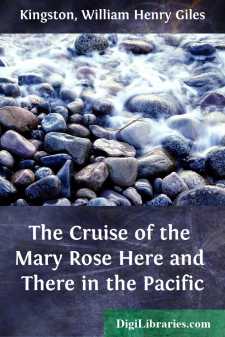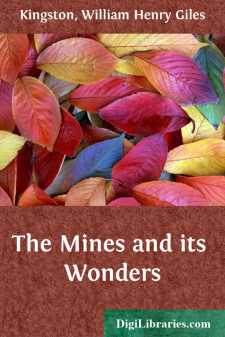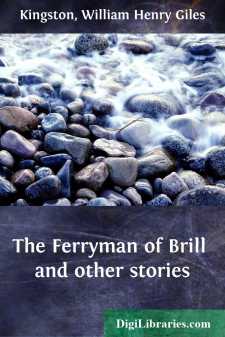Categories
- Antiques & Collectibles 13
- Architecture 36
- Art 48
- Bibles 22
- Biography & Autobiography 813
- Body, Mind & Spirit 142
- Business & Economics 28
- Children's Books 14
- Children's Fiction 11
- Computers 4
- Cooking 94
- Crafts & Hobbies 4
- Drama 346
- Education 46
- Family & Relationships 57
- Fiction 11829
- Games 19
- Gardening 17
- Health & Fitness 34
- History 1377
- House & Home 1
- Humor 147
- Juvenile Fiction 1873
- Juvenile Nonfiction 202
- Language Arts & Disciplines 88
- Law 16
- Literary Collections 686
- Literary Criticism 179
- Mathematics 13
- Medical 41
- Music 40
- Nature 179
- Non-Classifiable 1768
- Performing Arts 7
- Periodicals 1453
- Philosophy 64
- Photography 2
- Poetry 896
- Political Science 203
- Psychology 42
- Reference 154
- Religion 513
- Science 126
- Self-Help 84
- Social Science 81
- Sports & Recreation 34
- Study Aids 3
- Technology & Engineering 59
- Transportation 23
- Travel 463
- True Crime 29
The Three Midshipmen
Description:
Excerpt
Early Days.
Ours was a capital school, though it was not a public one. It was not far from London, so that a coach could carry us down there in little more than an hour from the White Horse Cellar, Piccadilly. On the top of the posts, at each side of the gates, were two eagles; fine large birds I thought them. They looked out on a green, fringed with tall elms, beyond which was our cricket-field. A very magnificent red-brick old house rose behind the eagles, full of windows belonging to our sleeping-rooms. The playground was at the back of the house, with a grand old tulip tree in the centre, a tectum for rainy weather on one side, and the large school room on the other. Beyond was a good-sized garden, full of apple and pear trees, but, as we very seldom went into it, I do not remember its appearance. Perhaps, were I to see the place again, I might find its dimensions somewhat altered. The master was a first-rate schoolmaster. What his attainments were, I cannot say; but he understood managing boys admirably. He kept us all in very good order, had us fairly taught, fed us with wholesome, if not luxurious, food, and, though he used his cane freely, treated us justly. We held him in awe, and yet we liked him.
It was after the summer holidays, when I had just got back, I heard that three new boys had come. In the afternoon they all appeared in the playground. They were strangers to each other as well as to us, but their similarity of fate drew them together. One was a slightly made, dark, and somewhat delicate-looking boy; another was a sturdy little fellow, with a round, ruddy countenance, and a jovial, good-natured expression in it, yet he did not look as if he would stand any nonsense; the third was rather smaller than the other two, a pleasant-looking fellow, and though his eyes were red with crying, he seemed to be cutting some joke which made his companions laugh. He had come all the way from Ireland, we heard, and his elder brother had that morning left him and gone back home, and that made him unhappy just then. He at once got the name of Paddy in the school. He did not mind it. His real name was Terence Adair, so sometimes he was called Paddy Adair.
“I say, you fellow, what’s your name?” asked a biggish boy of the stoutest of the three new-comers.
“Jack Rogers,” was the answer, given in a quiet tone.
“I don’t believe it,” replied the big boy, who was known as Bully Pigeon; “it’s such a rum name.”
“I’ll make you believe it, and remember it too,” exclaimed the new-comer, eyeing the other from head to foot, and walking firmly up to him, with his lips closed, while he moved his head slowly from side to side. “I tell you my name is Jack Rogers—Now!”
The bully did not say a word. He looked as if he would have liked to have hit, but Paddy Adair had followed his new friend, and was evidently about to join in the fray if it was once begun; so the big boy thought better of it. He would gain no credit for attacking a little fellow the first day of his coming....


